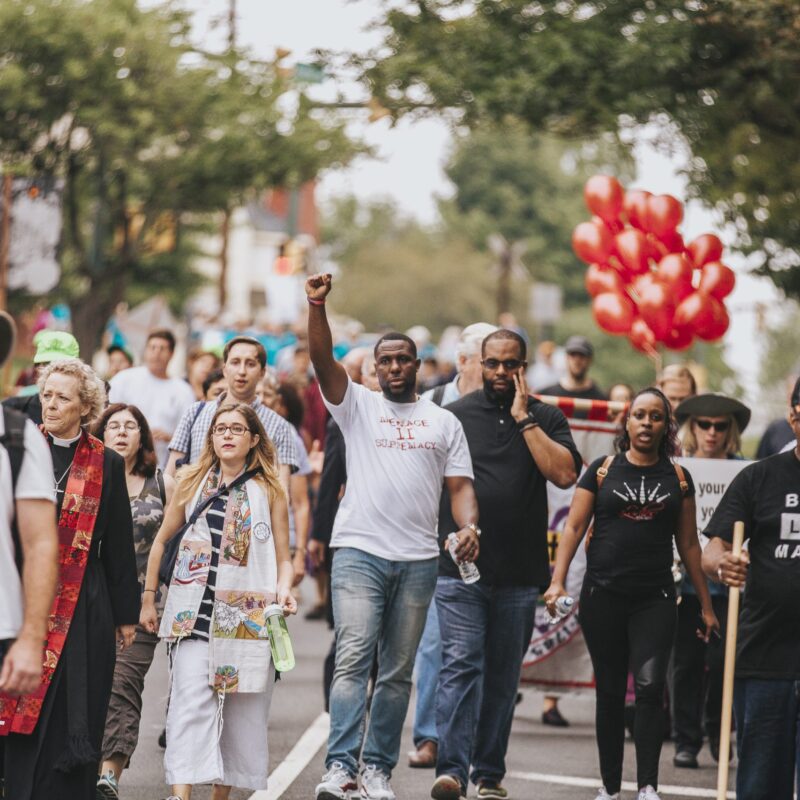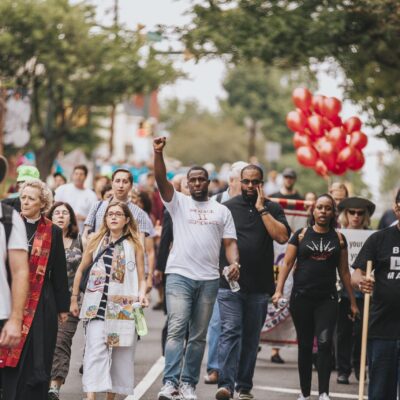| For a transcript of C-VILLE’s conversation with Michael Klarman, click here. |
Michael Klarman leans back in his office chair and kicks his feet up on the desk. The UVA professor of law, constitutional historian and resident expert on the history of race and law in America is just back from Boston, where he watched his beloved Red Sox shut out the Angels in a playoff series they’ll go on to win. The man, in so many words, loves his Bo Sox.
As the baseball playoffs extend into another October, he’s also tracking another season—that of the U.S. Supreme Court. Liberals took a beating in recent cases: "partial-birth" abortions, campaign finance, student free speech and voluntary integration. But Klarman says this time around it might be different.

"It turns out, maybe ironically, that war is one of the most important forces behind progressive racial change in American history," says Michael Klarman, UVA law professor and constitutional historian.
|
"It turns out this year, there are a bunch of cases where the liberals might actually win, because everything turns on Justice Kennedy," says Klarman. "They just took a highly politicized case involving voter IDs. A big issue since 2000 has been Republicans in state legislatures requiring photo IDs to vote. Democrats vote against them because they think there’s an effort to suppress minority and poor people’s voting. Republicans say it’s an effort to stem voter fraud."
These are the issues Klarman finds most intriguing—the points in American history where law and race intersect. His most recent book, Unfinished Business: Racial Equality in American History, examines the course of racial equality in America. In it, he highlights the social and political factors along with the particular laws and court decisions that have shaped American politics and society today.
Klarman has written extensively about the Brown v. Board of Education decision of 1954. The decision, argues Klarman, actually served as a short- term setback for civil rights, though it paradoxically played an important and often violent role in the achievement of the movement.
"The short-term effect was to dramatically polarize politics," he says, which led to white Southerners intensifying their fight against segregation and, eventually, to the deployment of federal troops to integrate schools. "Brown actually in the short term made things worse in the South, but by doing that, it ultimately accelerated civil rights because you had to bring out the worst in white supremacy and put it on display for the country before people were mobilized to do something about it."
As Klarman sees it, we’ve made less progress than we think. He points to what’s become known as the Republicans’ "Southern Strategy," using race as a wedge issue to appeal to Southern voters. It’s still viable, popping up in commercials during the 2006 U.S. Senate campaign in Tennessee.
"They’re producing them because they work," says Klarman. "Sometimes I wonder how Republicans look themselves in the face and don’t just repudiate what their party stands for. I mean, this is the worst form of tacit appeal to racial instinct, and it still works. Somebody needs to condemn this stuff."
C-VILLE welcomes news tips from readers. Send them to news@c-ville.com.





